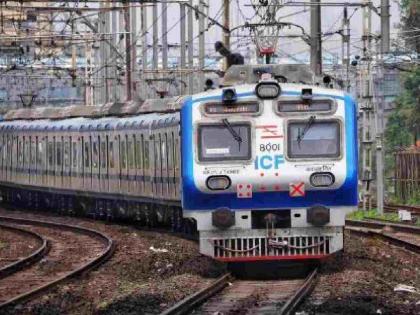Mumbai Local Train Upgrade: 238 New AC Rakes to Run as 15- and 18-Car Sets
By Lokmat Times Desk | Updated: September 4, 2025 08:57 IST2025-09-04T08:56:33+5:302025-09-04T08:57:23+5:30
The Indian Railways has revised its strategy for procuring 238 new air-conditioned (AC) local trains, opting to design them ...

Mumbai Local Train Upgrade: 238 New AC Rakes to Run as 15- and 18-Car Sets
The Indian Railways has revised its strategy for procuring 238 new air-conditioned (AC) local trains, opting to design them as 15-car or even 18-car sets instead of restricting them to the existing 12-coach format. This shift is aimed at tackling the rapidly increasing number of commuters in Mumbai’s suburban network. The revised proposal was submitted to the state government by the Mumbai Rail Vikas Corporation (MRVC) around two weeks ago and was among the infrastructure initiatives approved by the state cabinet on Wednesday. Overall, the project involves 2,856 AC coaches, which will serve both Western and Central railway suburban routes.
Currently, all AC local trains in the city are restricted to 12-car formations, with no option for adding more coaches. However, the new fleet of 238 AC locals is being designed to accommodate 15- or 18-car operations, subject to upgrades in infrastructure like platforms, signalling, and tracks. This ambitious procurement plan falls under the Mumbai Urban Transport Project (MUTP) and is expected to cost around ₹21,000 crore. Railway officials explained that the new design will enable the creation of full-length vestibule trains with 18 cars, significantly easing congestion for daily travellers.
According to railway sources, the project has witnessed a cost increase of nearly 9% compared to its original estimate in 2019. Authorities clarified that the 2,856 AC coaches can be flexibly arranged as 12-, 15- or 18-car rakes to suit future requirements. In line with the ‘Make in India’ initiative, this plan avoids foreign loans, with expenses being equally divided between the state government and Indian Railways. Earlier, the trains were to be procured under MUTP-3 and MUTP-3A, supported partly by multilateral development banks. Once tenders are floated, officials estimate a 6-8 month timeline to finalise contracts, with the first trains likely to arrive in 6-7 years.
These upgraded trains are expected to enhance passenger comfort with cushioned seating, better cooling systems, and mobile charging facilities. Alongside this procurement, the state cabinet has also cleared multiple railway expansion projects in the Mumbai Metropolitan Region (MMR) and adjoining areas. These include the Panvel-Vasai, Asangaon-Kasara, and Badlapur-Karjat corridors, at an estimated cost of ₹15,000 crore. Approval has also been granted for expanding the Pune-Lonavala suburban rail corridor, costing around ₹5,000 crore. Railway officials confirmed that this set of projects forms part of MUTP-3B, which received state approval and will now move forward for clearances from the Ministry of Railways.
One of the highlights of the Panvel-Vasai suburban line will be two elevated flyovers from Vasai, one leading towards Virar and another towards Borivali. These additions will allow trains to directly connect to routes serving Churchgate and Dahanu, significantly improving regional connectivity. Additionally, work is progressing on the Panvel-Karjat suburban corridor, a project worth ₹2,782 crore. Scheduled for completion by March 2026, this corridor is expected to reduce travel pressure on existing lines while opening up new commuting options for Mumbai’s expanding suburban population. Together, these developments signal a major upgrade in the city’s transport infrastructure.
Open in app